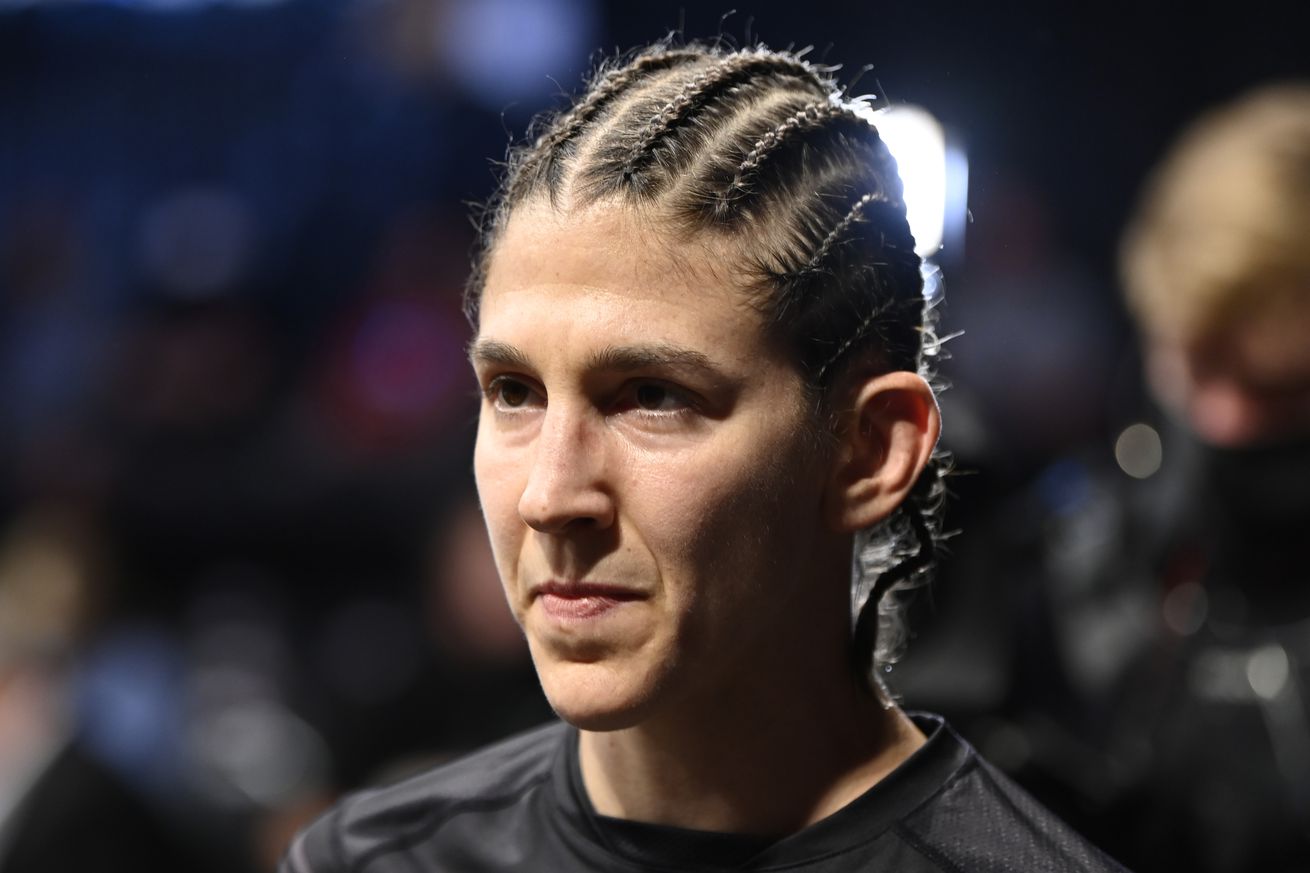
Roxanne Modafferi tackles your questions, Happy Warrior style, in her latest ‘Dear Roxy’ column for Bloody Elbow.
Roxanne Modafferi is back again to answer all the burning questions fans have about MMA, training, and life in general, in her latest ‘Dear Roxy’ column.
It’s been a minute since the last one, but back in late January, we took a look at injury rehab and recovery, nutrition supplements, and sparring frequency. We also answered questions about camp management, and finding the perfect ration of cardio & strength training alongside drilling technique.
This time around we’re tackling one of the sport’s longest running topics: MMA Math, does it work? We’re also looking at retirement, how to know when enough is enough, and the recent trend of fighters dropping out of the USADA pool to recover from injuries. Also: Nerves just how bad to fighters get ‘em?
Dear Roxy,
Does MMA math work for professional fighters? If you are scheduled for a match with Fighter A, and both of you have fought Fighter B, can you extrapolate any information from that, or you only really know what you’re in for when the cage door closes? — Peter K
Dear Peter K,
Well, if I am fighting someone, I will watch their previous fights and see how their skillset matches up against someone I know, so it’s helpful to me, yes. In terms of A beat B, and B beat C, so A should beat C. No, MMA math like that does not work at all. I believe each fighter matches up with another differently. For example, I think that only Holly Holm was able, at that time, to defeat Ronda Rousey because of Holly’s unique abilities: her evasive movement, defensive wrestling, striking counters, and offensive counters. Lots of other types of fighters had faced her but to no avail. It’s interesting to try MMA math, but that is not the scientific method—there are too many variables. You also can’t recreate the same fight between two people, although they can be similar. Fighters are human beings. Some days we wake up feeling great, sharp, and ready. Others, not so much.
Dear Roxy,
With so many fighters fighting after they can no longer perform to their best, you seem to stand out as one of the fighters who left the cage more or less on their own terms. What would you say was the biggest sign that led you to commit to retirement? — Professor Big D.
/cdn.vox-cdn.com/uploads/chorus_asset/file/24541059/1238430619.jpg)
Photo by Louis Grasse/PxImages
Dear Professor,
Well, the first and foremost reason I retired was because I started getting headaches after hard sparring matches. I know we all have a timebomb, in a manner of speaking, which determines how much our bodies can take. I felt I reached my physical limit. Other than the headaches, I did feel that my peers were all gradually surpassing me in strength. I don’t consider myself naturally athletic and it’s hard for me to build muscle. I won all my fights with technique and good timing. However, it seemed like my peers had been matching my techniques and good timing, plus they were getting stronger too. I didn’t think I could improve significantly enough to surpass the youngsters and stay in it much longer. I didn’t want to start getting beaten up. Despite my last several fights being loses, I feel they were competitive and I can be proud of them.
Dear Roxy,
How do you feel about fighters dropping out of USADA in order to use PED’s to recover from a serious injury? – Mr Allergic to the Cold
Dear Mr. A to the C,
Well, injuries suck, especially horrific ones like the crazy bad leg breaks where the bones snap in half. However, I’ve heard that certain PEDs add muscle cells to your body and change your body’s structure in ways that stay with you even when you get off the drugs. Take Conor McGreggor. He looks like a different person—his face is wider in addition to clearly having added a lot of muscle. Is that fair for his next opponent? That’s way more than healing an injury. If a competing athlete wants to take steroids to heal an injury, they should do it after they retire and their career is over.
Dear Roxy,
Chael Sonnen once told a story about a fighter who was extremely nervous before a bout and started coming up with a multitude of excuses of why they needed to pull out of the bout, and eventually they just literally ran away from the venue. Have you experienced or heard anything like that throughout your career? – Cyberslick
Dear Cyberslick,
Yes, but only in the amateur circuit. Fight nerves are awful. We go through lots of things that aren’t talked about a lot. Even me! I have fifty pro fights under my belt and am confident in myself. I still get periodic adrenaline rushes throughout the morning and afternoon of fight day. I get diarrhea from my nerves, and I lose my appetite. I can’t eat after lunch. I know people who throw up or can’t eat all day. Of course some people don’t experience that, I’m sure. However, fighting isn’t for everyone. I’m sure everybody gets scared and some people can’t handle it. I’ve had teammates on a local Vegas card lose their opponent to a “no show.”
If you’d like to submit your own questions for ‘Dear Roxy’ feel free to email me at [email protected], with the subject line “Dear Roxy”, or reach out on twitter @RoxyFighter with the hashtag #DearRoxy. Or simply leave your questions in a comment below on Bloody Elbow. Look forward to hearing from you all soon.